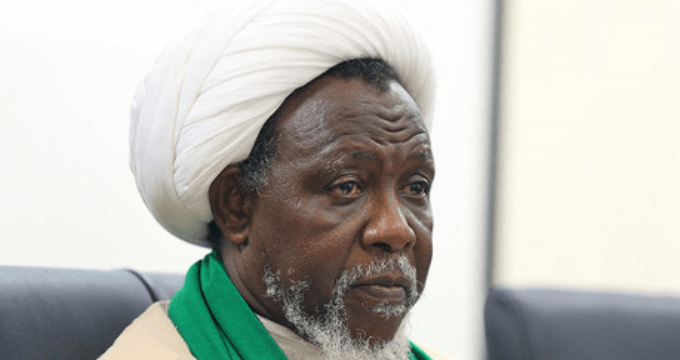
New medical findings prompt plea for urgent evacuation of Sheikh Zakzaky

5 July 2019
PRESS RELEASE
Further examinations on the health of the illegally detained leader of the Islamic Movement of Nigeria have found that the levels of lead toxicity in his body are much higher than the already critical levels reported last week.
Doctors now say that lead levels in Sheikh Zakzaky’s blood are 25% higher than originally discovered and some 45 times over the normal acceptable limit.
Doctors also found worrying levels of cadmium in urine samples taken from Sheikh Zakzaky. Cadmium toxicity affects multiple organs particularly the lungs and the gastrointestinal tract (acute toxicity) and the bones and kidneys.
The latest findings are by specialists asked to look in more detail at the results of examinations undertaken by a IHRC-led medical team that flew to Nigeria in April in order to examine Sheikh Zakzaky and his wife Zeenah, who is also in detention.
“Based on the patient’s clinical details and laboratory findings coupled with the available literature on the subject matter, I can conclude that Shaykh Zakzaky is being exposed to both lead and cadmium. The blood levels of both these metals are dangerously elevated, in the case of Lead, more than 45 times the acceptable limit! The exposure to lead may be a direct result of multiple retained bullets or bullet fragment. This heavy metal toxicity has grave short term as well as long term consequences including (but not limited to) cardiovascular, neuropsychiatric, skeletal and renal morbidity and carries the high risk of malignancy and death,” concludes the report by Mubarakali N Janmohamed, Advanced Clinical Fellow in Renal Medicine and General Internal Medicine.
The specialist further states that chelation therapy is needed to treat Sheikh Zakzaky but since it is not available in Nigeria, it is essential that he be transferred to a reputable centre abroad at the earliest opportunity.
Another separate report by Dr. Suhail Hassan of Chelsea Pharmacy Medical Clinic reached the same conclusion but added that the sheikh is also suffering from Post-Traumatic Stress Disorder. This needs to be treated immediately by specially trained psychiatrists in a setting removed from the traumatic environment in which the sheikh currently finds himself.
Sheikh Ibrahim el-Zakzaky lost sight in one eye and the use of one arm after receiving four gunshot injuries during the December 2015 massacre by the Nigerian military of over 1000 followers of the Islamic Movement of Nigeria. The lead toxicity is believed to be a direct result of the shrapnel from bullets left in his body.
Since their detention the couple’s supporters have sought to provide them with necessary medical help. However, Nigerian authorities have consistently prevented the pair from accessing their own medical treatment and have repeatedly refused requests for them to fly abroad. In January this year a judge presiding over the trial of Sheikh Zakzaky ordered that he should be allowed to receive medical treatment from doctors of his own choosing.
In May IHRC submitted a report to the United Nations higlighting systematic state abuse in the authorities’ treatment of the country’s Islamic Movement.
The report was written for the review by the UN’s Human Rights Committee of Nigeria’s compliance with the International Covenant on Civil and Political Rights.
The report can be read at https://www.ihrc.org.uk/activities/ihrc-at-un/22349-iccpr-nigeria-2019/
For more information or comment please contact the Press Office on (+44) 20 8904 4222 or (+44) 7958522196[ENDS]
——————————————————————————————
IHRC is an NGO in Special Consultative Status with the Economic and Social Council of the United Nations.
Islamic Human Rights Commission
PO Box 598
Wembley
HA9 7XH
United Kingdom
Telephone (+44) 20 8904 4222
Email: info@ihrc.org
Web: www.ihrc.org
Twitter @ihrc
IHRC is an NGO in Special Consultative Status with the Economic and Social Council of the United Nations.
Islamic Human Rights Commission
PO Box 598
Wembley
HA9 7XH
United Kingdom
Telephone: (+44) 20 8904 4222
Email: info@ihrc.org
Web: www.ihrc.org
Twitter: @ihrc





